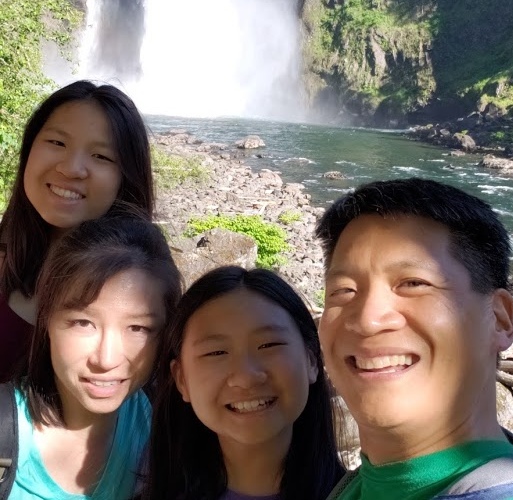
Following the Blue Zones Power 9's 80% RULE helps Andy Wang balance nutrition and well-being.
In the world’s Blue Zones, the longest-lived people have strategies to avoid overeating. For example, Okinawans repeat a 2,500-year-old mantra "Hara hachi bu” before meals, which reminds them to eat mindfully and stop eating when their stomachs are 80% full. That’s called the 80% Rule, which can help reduce calories, prevent weight gain, and avoid chronic diseases. For Andy Wang, an information technology professional, practicing this Power 9 principle is how he has amped up his well-being and improved his eating habits.
As serious running enthusiast, Wang is a familiar face at races and running events around town. But he wanted to improve other areas of his life, such as nutrition and mindfulness, so he adopted a variety of portion-control techniques. If he plans to eat a hearty dinner, he’ll have a light meal for lunch. He also tries to avoid eating between meals but does like salty snacks occasionally and says chips are his favorite. He has a strategy to enjoy them in moderation. “With the chips, I get the portion that I want and then put the bag away,” he says. “I make sure the bag stays in the pantry out of sight so that I don’t keep mindlessly dipping into it.” Wang is also a fan of the Power 9 principle of Plant Slant and has focused on upgrading the quality of the food he eats by incorporating more vegetables in his diet.
Wang also incorporates a bit of the Power 9 principle of Downshift into his running. As part of his well-being makeover, Wang fine-tuned his form and focused on running “easy miles” instead of pushing himself to exhaustion. He shuns the idea of “no pain, no gain” and tries to not overdo his physical activity. He often uses his running time for meditation. With that philosophy, he has worked up to running 60 miles a week and says it feels like less effort than before.
Running also links Wang to the Power 9 principles of Purpose and Right Tribe. He loves it so much he started a side business to handle participant registrations and data management for running events. It’s also helped him find his own Right Tribe, people who enjoy and support the same healthy behaviors. “I enjoy connecting with the people I run with,” Wang says. “It’s been a real blessing. When you participate in an activity together, you form friendships and build bonds that extend beyond the sport.”
Another important Power 9 principle in Wang’s life is the idea of Family First. Successful centenarians in the world’s original Blue Zones commit to a life partner and invest in their children with time and love. In the Wang household, that includes a shared love for physical activity. When Wang’s daughters, ages 13 and 17, were younger, they participated in 5K events with their dad and formed friendships with kids from other running families. They’re now active on school cross country and track teams. Wang’s wife likes to walk and do yoga, and the entire family hikes and rides bikes together. “Getting the family involved in movement is really important,” he says. “Helping them stay healthy is one of the best things you can do for your family.”
In the world’s original Blue Zones, people live in environments that nudge them into moving without thinking about it. It’s called Moving Naturally through such everyday things as gardening, taking the stairs, and parking farther away from your destination. Wang was an early adopter to that idea, although perhaps taking it to extremes. He first began running with friends while studying electrical engineering at Penn State University. It was often a practical strategy to avoid parking a car in crowded campus parking lots. “We’d run about two miles from our off-campus house to the football games, hang out there and run back afterward,” he recalls. Talk about getting your steps in!
To incorporate the 80% Rule and other Blue Zones Power 9 principles into your own life, Wang says you just need to get started. Improving your well-being is a lifelong process, and the journey begins with a single step.